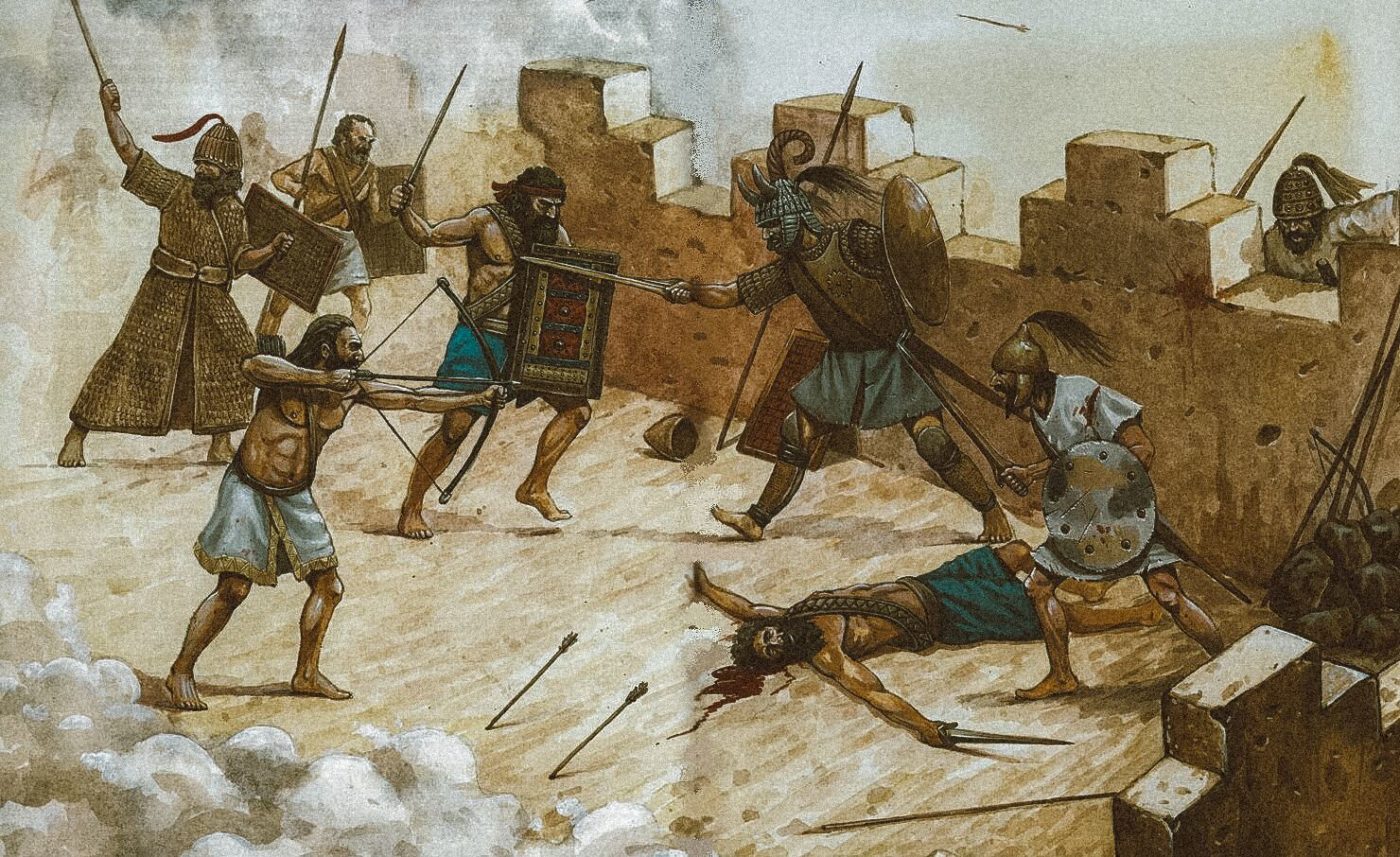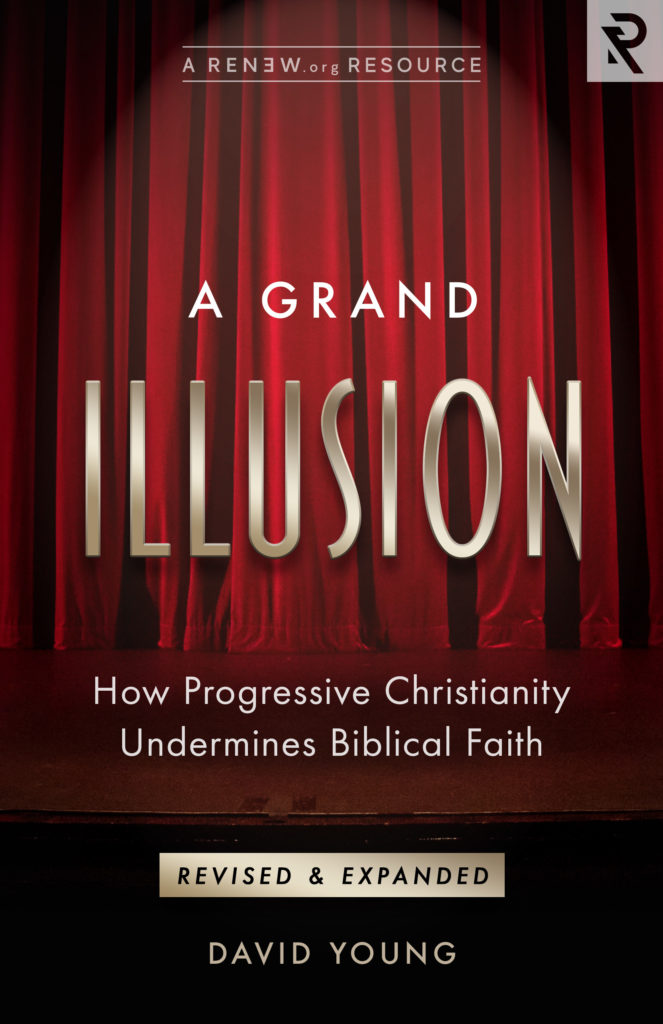
The Slaughter of the Canaanites: An Answer
“We don’t realize the extent to which our framework for thinking about the Bible and violence (among other topics) is culturally determined.” – John Goldingay
In this article, I will discuss one of the most controversial and heavily debated subjects in the Bible: the Israelite conquest.
The most pertinent questions regarding the Israelite conquest of Canaan (See Deuteronomy 2:32-37; 3:6; Chapter 7, Deuteronomy 20:10-18) and other nations designated for herem (total destruction or devotion to the Lord) are:
- How literally should we interpret the Israelite Conquest?
- Was this genocide?
- Was God justified in commanding such a conquest?
In a previous post, I describe the most common positions I have heard in response to these questions. I will simply give an outline of some of the positions here:
- Scripture is fallible and does not always represent God and His actions accurately
- God “wore a mask” and let Himself “appear evil”
- Total allegorization of the passages
- God “got Himself dirty” in order to have a relationship with His people
- The Canaanite nations were very evil and wicked
- The descriptions of the conquest are completely hyperbolic
- The descriptions are literal and were God’s moral right
- The Canaanite nations were descendants of the Nephilim (giants)
- The conquest was to establish the “military prowess” of Israel (as explained in The Lost World of the Israelite Conquest by John and Harvey Walton)
Some of these possibilities can overlap while others cannot.
For instance, one cannot hold to a wholly literal interpretation and also completely allegorize the Israelite conquest. However, someone could hold to a literal historical interpretation while still taking the conquest as allegorical for the church today.
The only totally unchristian interpretations in my view are possibilities 1 and 2. Besides these, the reader must decide what possibilities seem most likely and logical. I believe possibilities 3-8 each have some truth, while one and two must be rejected by Christians.
1. How literally should we interpret the Israelite conquest?
I believe that God did not command the complete annihilation of the Canaanite peoples but rather their “removal” from the land, which most likely involved killing women and children along with militia who did not flee from God’s wrath or join the Israelites, as Rahab’s family did. I do not believe we can get around this within the text. The Israelites were the instruments of God’s wrath just as the flood was an instrument of God’s wrath in the days of Noah.
It is apparent that the conquest was God’s wrath rather than from human motivation because of the extreme unlikeliness of its success.
The Israelites were emphasized to be weak and unable (see Numbers 13:27-33; Deuteronomy 7:7, 17-20; Joshua 6 and 10), and the Canaanites were emphasized to be “like giants,” and far more advanced technologically than the Israelites. The Israelite success was like someone attacking the White House with a tiny water-gun and watching it fall to the ground!
Throughout the narrative, it is apparent that the Israelites are not capable and need God’s divine intervention at every turn. Because of this, I believe the Israelite conquest was God’s retributive punishment on the Canaanite nations, and that God in His sovereignty is able to decide when a nation’s wickedness has reached its limit and is deserving of wrath.
2. Was This Genocide?
Before we try to answer this question, I found these words by John Walton in The Lost World of the Israelite Conquest helpful:
“The conquest is a war, but if we want to understand the event, we cannot do so by using our modern understandings about war—what it is, what it is for, whether it is good or evil, how it should be waged, and so on. Instead, we have to look at the account in light of ancient understandings about war.
“When we read phrases like ‘destroy them totally . . . and show them no mercy’ (Deut. 7:2), the meanings of those (English) words combine with the logic of our cognitive environment to produce a meaning of ‘do a thing that should never be done.’ Consequently, when we translate the conquest event today, we are inclined to draw parallels to other things that our culture defines as things that should never be done: the Holocaust, jihad, colonial imperialism, the Crusades, and so on. But in the logic of the cognitive environment of ancient Israel, God was not commanding Joshua to do a thing that should never be done. Those parallels are therefore an example of bad cultural translation. Joshua is conducting a war in a generally similar manner to the way wars were conducted in the ancient world. . . . Whether or not we prefer to conduct wars that way is irrelevant; what matters most is not what Westerners think about the methods, but what ancient Near Easterners would have thought” (pp. 10-12).
What Walton is saying here is that we have to approach scripture as we would going into a world different from us in many ways. The things that enraged or angered them were altogether different from what anger us as a modern society.
Let’s look at a few reasons this conquest was in fact war as it was normally waged in the ancient world, rather than a determined extermination of a people group.
First, we learn that God is not singling out one particular people group when we discover that He brings similar wrath to His own people when they commit evil and ignore the terms of His covenant (see Deuteronomy 28:15-68).
God’s wrath on the nations residing in the promised land was for one specific time in history to bring wrath on the nations there. This was not something God endorsed at any other time for the Israelite people to do.
In the case of the Canaanites and the inhabitants of the nations designated for herem, God commanded complete destruction (See Deuteronomy 7:1-6 as compared to Deuteronomy 20). However, we can be sure that this wrath was not racially or ethnically motivated, but morally motivated (see the exceptions given for Rahab in Joshua 2, the Gibeonites in Joshua 9, Deuteronomy 9:1-6, and Deuteronomy 28:15-68).
To summarize, because the conquest . . .
- Was God’s wrath, not from human motivation or ability
- Was a conquest as it would have often been waged by a nation in the ancient world
- Was not racially or ethnically motivated
- Involved driving the Canaanites out of the land whenever possible rather than the determined annihilation of every Canaanite person
. . . I do not believe the conquest can be constituted as genocide.
3. Was God Justified in Commanding Such a Conquest?
God at times treats nations in a similar way to how He does individuals. For example, in Revelation 2:20-25, God kills Jezebel’s children for her wickedness. Were the children of Jezebel innocent? Yes, but God in His eternal wisdom decides when even the innocent must pay the consequences for the sins of others.
In an individualistic society such as America, this very statement screams of injustice. However, God is not bound by American or post-enlightenment ideals of justice. Rather, He as God decides what is the best way to bring about justice for evil. In scripture, at times this clearly involved taking the lives of the innocent because of the guilty.
This says nothing of the eternal destination of the innocent, but simply that the actions of the guilty can sometimes bring consequences and judgment on a whole family, clan, or nation.
In the New Testament, only God can carry out wrath and judgment on individuals or nations since the Sermon on the Mount and other New Testament teaching would forbid God’s people from taking such actions (see Romans 12:14, 19-21). However, in the Old Testament, God could use His people to carry out His wrath and judgment. In Joshua, God used His people to carry out His wrath against Achan and His family just as He does apart from human agents on Jezebel in Revelation chapter 2.
The lesson for us should be that God does, at times, allow the innocent to be punished, or at least experience consequences, for the sins of the guilty (see Exodus 20:5; 34:7).
While I’m not comfortable with this, I must admit that God does this throughout scripture, but never through God’s people after the new covenant under Christ has been established. There is no biblical justification for God’s wrath coming through God’s people under the New Covenant, as can be attested by the general pacifism of the first three hundred years of Christianity. The teachings of Jesus and the apostles forbid all vengeful actions.
One might appeal to Ezekiel 18 as evidence for the idea that God never punishes the innocent for the sins of the guilty. However, this chapter can also be taken as saying that the innocent will not be held responsible for the sins of the guilty, and that sin is not passed down to the next generation. However, we can see that at some points in scripture God allows the innocent to receive the consequences of the guilty.
(For more from Jonathan, visit jonwalt.com. Used with permission.)









